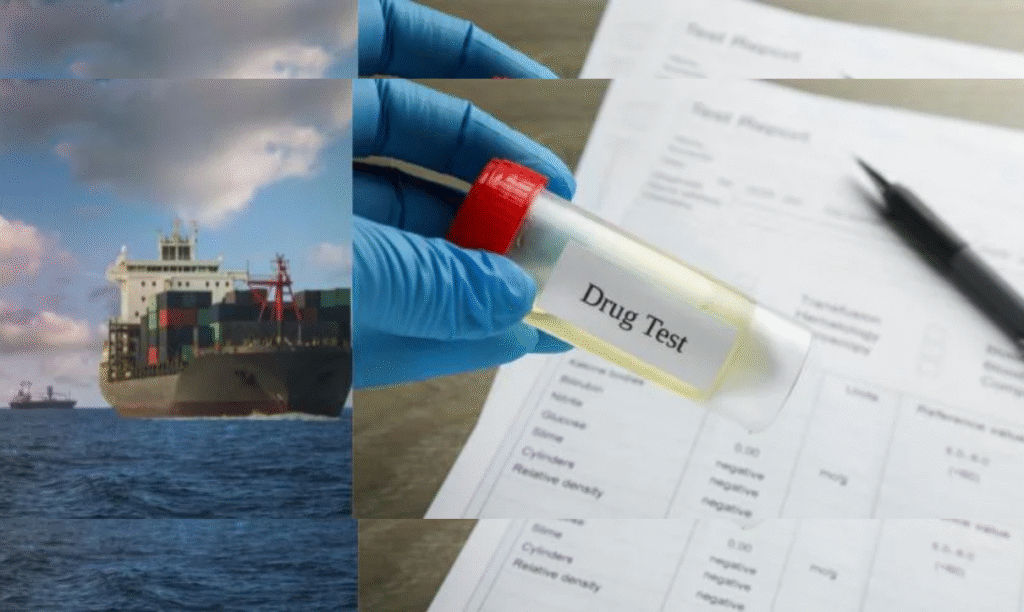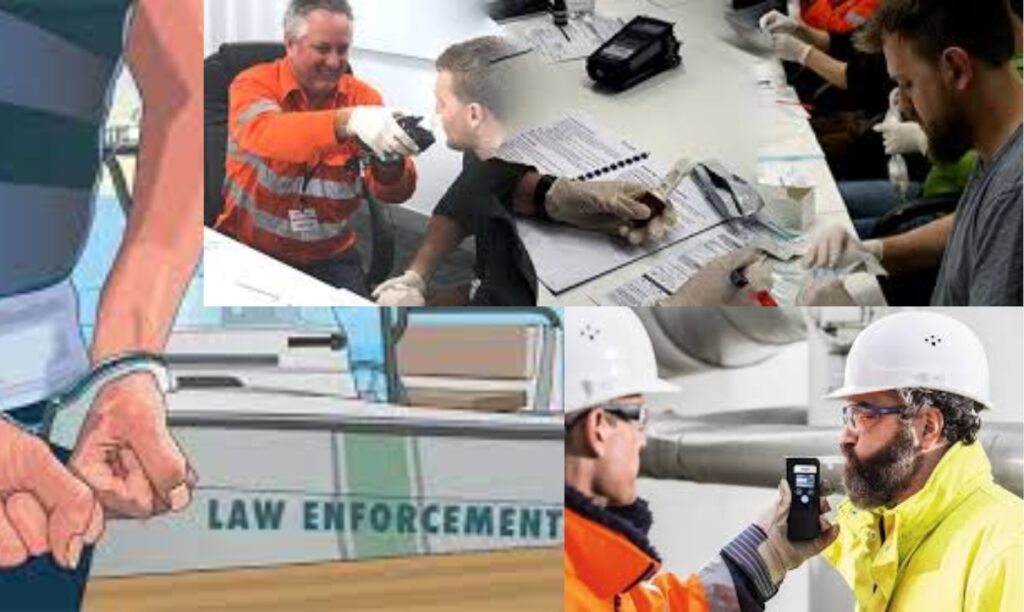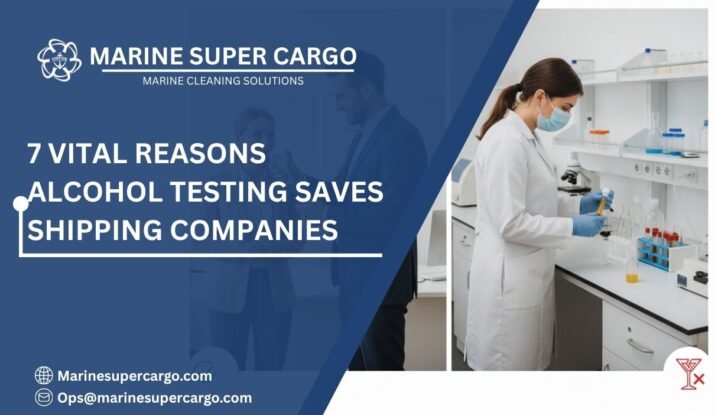Alcohol Testing is more than just a procedure—it’s a necessity for any shipping company aiming to protect its crew, operations, and reputation. The sea has no tolerance for errors, and impaired judgment is a silent but deadly risk. That’s why random Alcohol Testing helps ensure reliability, operational safety, and compliance with international standards.
Below, we’ll break down everything shipping professionals need to know about Alcohol Testing: why it matters, international frameworks, industry myths, future innovations, and effective strategies for implementation.
Why Alcohol Testing is Critical for Shipping Companies
Ensures crew members are fit for duty at all times. Unlike land-based industries, where accidents affect smaller areas, the stakes at sea involve human lives, millions of dollars’ worth of cargo, and vulnerable environments. Tests serve as an early alarm system, preventing tragedies before they unfold.
Testing ensures that watchkeepers don’t make impaired decisions that could endanger not only vessels but also surrounding ships and marine ecosystems. It’s the cornerstone of operational safety—confirming that human oversight aligns with industry expectations.
For crew members, it fosters accountability and protects those who abide by the rules from the risks created by others. For companies, it’s both legal compliance and reputational insurance.

Understanding Random Alcohol Testing
Random Alcohol Testing differs from scheduled checks because employees can’t prepare for it. This unpredictability nurtures an environment where every seafarer knows they must always remain compliant, ensuring duty fitness.
For ship operators, it supplements other safety layers like environmental controls and vessel inspections. With alcohol consumption banned or restricted onboard according to various maritime codes, random enforcement ensures that risks remain minimal.
Routine usually involves breathalyzer devices capable of providing accurate readings instantly. Some companies also adopt saliva tests for convenience. By standardizing procedures, employers shift alcohol compliance from being a potential loophole into a solid safety culture.
The message is simple but powerful: for operations to remain smooth, professionalism and fitness for duty are non-negotiable. Random testing enforces that without prejudice.
Regulatory Frameworks Governing Alcohol Testing
The International Maritime Organization (IMO) requires strict alcohol controls, ensuring that crew members monitoring navigation duties have a blood alcohol concentration (BAC) less than 0.05%.
The MARPOL Convention plays a role by prioritizing pollution prevention since many marine incidents stem from human errors caused by impairment. The IMCA (International Marine Contractors Association) strengthens these rules by advising employers to enforce sober work environments as part of global safety practices. Finally, the International Association of Ports and Harbors (IAPH) supports alignment at port entry points by encouraging unified checks.
This framework leaves no ambiguity—shipping operations must enforce Alcohol Testing to maintain compliance. Non-compliance has severe consequences, from heavy penalties to operational detentions, insurance rejections, and reputational decline. Ultimately, enforcement becomes not only a legal responsibility but also a financial protection.
Benefits of Alcohol Testing in Maritime Operations
Beyond compliance, Alcohol Testing grants shipping companies several operational and financial advantages. Testing reduces risks of personal injury, environmental spills, and machinery mishaps caused by impaired judgment. It reassures insurers and strengthens eligibility for lower premiums.
From a crew perspective, Alcohol Testing boosts accountability and makes seafarers feel safer working in potentially hazardous conditions. It builds trust that everyone on board shares the responsibility of safe operation.
Environmentally, tests prevent negligence that might trigger catastrophic oil spills, aligning with international sustainability frameworks like MARPOL. Financially, companies avoid massive penalties and reputational damage that follow accidents tied to alcohol use.
In sum, Alcohol Testing protects three essentials: people, profits, and the planet. Few procedures play such a multidimensional protective role across industries, but in maritime, its importance amplifies because consequences scale beyond the ship itself. Also read about the Surveyor’s role during hull cleaning operations.
Human Reliability: The Big Picture
Technology at sea advances rapidly, with AI-based systems, digitalized operations, and automated controls. Yet, human judgment remains the ultimate determinant of safety. Even the most advanced autopilot requires sober decision-making when unexpected challenges arise.
Alcohol Testing ensures humans remain the most reliable safety system onboard. It preserves efficiency under fatigue, stress, and extreme weather conditions—often the testing grounds of seafarer decision-making. Proper implementation demonstrates that shipping companies value both crew welfare and international expectations, reinforcing a strong safety-first culture.
Without Random Alcohol Testing, reliability becomes guesswork. And in maritime environments, risks born of guesswork can cascade—from collisions to major environmental facsimiles. Ensuring regular commitment to testing confirms human reliability remains aligned with machine precision—both essential for sustainable operations.
Persistent Myths
- “Alcohol Testing lowers morale.” In reality, it boosts morale by protecting rule-abiding seafarers from the dangers posed by impaired colleagues.
- “It invades privacy.” Testing is conducted confidentially, with sensitive handling of personal data. Fair treatment avoids potential grievances.
- “It’s costly.” Compared to the cleanup of an oil spill or loss of reputation, testing is negligible in cost and immense in value.
Dispelling these myths is vital. Alcohol Testing isn’t about punishment—it’s a protective safety culture. Companies that view it through a preventive lens reap broader health, efficiency, and financial rewards.
Future Innovations in Alcohol Testing
Alcohol Testing is evolving with technology, making compliance more streamlined:
- AI Integration: Systems predict crew fatigue and potential unsafe behavior.
- Non-invasive Testing: Saliva or touchless roadside-equivalent sensors minimize disruption.
- Real-Time Monitoring: Wearable technology alerts supervisors to dangers.
- Blockchain Compliance: Test results recorded securely for transparent audits.
These innovations turn testing from an intervention into predictive safety monitoring, reducing risk before incidents occur. Within a decade, Alcohol Testing may be integrated seamlessly into safety management technologies, making enforcement smoother and unavoidable. Technology ensures regulations remain proactive rather than reactive.
✅ 4 Things to Check for Safety at Sea pic.twitter.com/dAxhJQ2i6U
— Marine Super Cargo (@Marinsupercargo) September 14, 2025
Marine Supercargo Expands Services:
Marine Supercargo, widely recognized for innovative environmental services through its CleanShip.co platform, has now expanded into drug & alcohol testing services. This addition redefines safety for shipowners, operators, and managers, integrating compliance with operational efficiency.
The service follows IMO, MARPOL, and IMCA rules, ensuring that seafarers remain fit for duty while avoiding penalties, detentions, or excessive liabilities. By coupling Alcohol Testing with their proven hull-cleaning services, Marine Supercargo bridges two safety priorities—crew well-being and vessel sustainability.
Reduced downtime, fewer delays at ports, and lower insurance liabilities are direct benefits operators gain. By offering fairness, compliance, and reliability under one umbrella, Marine Supercargo strengthens the maritime sector’s commitment to safe environments and effective business practices. This initiative stands as proof that sustainable seas depend equally on clean vessels and sober, responsible crews. Learn more about Powerful Reasons Drug and Alcohol Testing Matters.
Best Practices for Implementing Alcohol Testing
For effective integration, shipping companies can adopt several strategies:
- Fair policies: Clearly defined and consistently enforced across crews.
- Crew education: Communicate the testing’s purpose to dispel suspicion.
- Manager training: Equip officers with recognition and enforcement skills.
- Confidentiality assurance: Build crew confidence by securing test data.
- Cultural normality: Treat Alcohol Testing as standard maintenance—routine, not punitive.
The best practices ensure testing supports morale instead of hindering it. By running fair systems, companies prove that Alcohol Testing is not an enforcer’s tool, but everyone’s shield at sea.

Cost-Saving Impacts of Alcohol Testing
Alcohol Testing adds immense cost benefits. Non-compliance often leads to detentions, investigations, and fines, resulting in lost revenue. Moreover, oil spills and accidents from impairment may run into millions in liabilities and litigation.
On the flip side, robust procedures lower insurance premiums, reduce risks of downtime, and strengthen fleet contracts with global clients. For companies, the return on investment in Alcohol Testing multiplies across time by avoiding expense-heavy accidents and maintaining trust with global regulators.
Conclusion
Random Alcohol Testing is not just another compliance checklist—it is the heartbeat of maritime safety. It keeps crew members alert, ensures international compliance, protects reputations, and prevents multimillion-dollar risks.
Key Takeaways:
- Alcohol Testing safeguards against accidents and aligns with IMO, MARPOL, and IMCA frameworks.
- Transparent, fair testing preserves morale while ensuring accountability.
- Future innovations make testing seamless, cost-friendly, and smarter.
For stronger operations and safer seas, shipping companies can explore integrated compliance and sustainability solutions with CleanShip.co. Safety at sea begins with clean ships and sober crews.
FAQs
Q1. Why is Alcohol Testing essential in shipping?
Because an impaired crew can cause catastrophic accidents. Testing ensures professionalism, preventing collisions, oil spills, and regulatory penalties.
Q2. How do IMO rules address alcohol at sea?
The IMO sets strict BAC limits of 0.05% for officers and requires companies to enforce Alcohol Testing compliance onboard vessels.
Q3. Does Alcohol Testing create hidden costs?
No—it reduces them. Testing minimizes delays, fines, accidents, and insurance burdens, saving operators significant costs long-term.
Q4. How does random Alcohol Testing affect crew morale?
Fair policies build morale by assuring safety for compliant crew while discouraging risky behavior. Responsible sailors appreciate the accountability.
Q5. Why combine Alcohol Testing with vessel cleaning?
Both practices reduce risks—cleaning lowers maintenance and emissions, while testing prevents human error. Together, they protect efficiency, crews, and marine environments.


